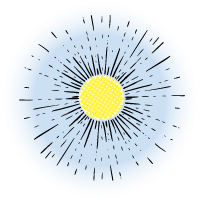Software error scrambles Washington hunting tag draw

Software problems disrupted Washington’s special hunt permit drawings this summer, and officials have been working to make things right.
A coding error in the third-party software that the Washington Department of Fish and Wildlife used for its June 12 special hunt permit drawings led to hundreds of hunters being told they won permits they shouldn’t have and hundreds of others being told they lost out on drawings they should have won.
WDFW found the error on June 27. Since then, the agency has worked to remedy the error by awarding tags to people who should have won them and by finding hunting opportunities for those who were told incorrectly that they’d secured a permit – either by increasing the number of tags available for some hunts or by swapping one permit for another.
The correct results are now reflected on hunters’ online licensing profiles. WDFW has sent emails to hunters explaining the error. They will also be sending them letters in the mail.
“I cannot overstate my disappointment in this situation and the impacts to hunters,” WDFW Director Kelly Susewind said in a statement.
Washington has 27 categories of special hunts covering a variety of species – including special elk and deer hunts and more rare opportunities like tags for moose and bighorn sheep. Only a certain number of permits are available for each special hunt as a way to keep pressure in check. Hunters apply for them each spring.
When applying, hunters can put in for multiple hunts per category and rank their choices in order of preference. The drawing is meant to honor that ranking.
That’s what broke during this year’s drawing, said Jennifer Becar, a WDFW spokesperson. A coding error affecting 22 of the hunt categories caused the software to disregard hunters’ preference rankings and instead assigned unrelated numerical values to their choices.
Within each application, the software considered whatever numerical value was lowest to be the hunter’s top choice, which often didn’t correspond with what the applicant themselves listed as their preferred option.
By the time the error was discovered, WDFW had already mailed out 94 permits for moose, bighorn sheep and mountain goat hunts.
“As soon as we identified this software error, we stopped sending out permits to folks so we could make sure everyone is getting the correct permit,” Becar said.
For those who should have drawn a tag, the fix was simple: WDFW awarded them the tags they should have won.
For some of the 738 hunters who were incorrectly chosen for a special hunt, it was a little more complicated. WDFW didn’t want to take away the hunt opportunities, so biologists looked at wildlife populations in special hunt districts to determine which hunts could handle extra pressure this fall.
In most cases, WDFW biologists found that hunters could still use the mistakenly awarded tags. Becar said that was the case for 715 of the 738 hunters.
Others were awarded different tags. Becar said 14 applicants were given one of the other tags they’d applied for. Nine applicants were assigned tags for hunts they did not apply for.
These sorts of errors aren’t unheard of, though WDFW believes it is the first time it’s happened in Washington. In Idaho this year, a mailing error resulted in postcards with the incorrect information about hunt drawings being sent to hunters. The correct information is available on hunters’ licensing profiles on the Idaho Fish and Game website.
